Haryana Switch to Hindi
Understanding the Anti-Defection Law for Independent Legislators
Why in News?
Recently, three Independent MLAs in Haryana extended support to the winning party, securing the party's third term in power. This situation raises questions about the anti-defection law, especially for independent legislators.
Key Points
- Tenth Schedule of the Constitution (Anti-Defection Law):
- The Tenth Schedule defines circumstances under which a legislator changing political allegiance invites action.
- Independent MLAs joining a political party after election are also subject to disqualification under the law.
- Three Scenarios Covered Under the Law:
- A legislator elected on a party ticket voluntarily gives up party membership or votes against party wishes.
- An independent MLA joins a political party after election, leading to disqualification.
- Nominated MLAs have six months to join a political party after nomination, or they face disqualification.
- Disqualification Process:
- The presiding officer of the legislature decides on disqualification.Speaker in the Lok Sabha and Chairman in the Rajya Sabha are the presiding officers.
- No specified timeframe exists for this decision, leading to delays and accusations of political bias.
- In 2023, the Supreme Court suggested anti-defection cases be resolved within three months.
10th Schedule of the Indian Constitution
- About:
- The Tenth Schedule of the Indian Constitution, also known as the Anti-Defection Law, was added by the 52nd Amendment in 1985.
- It was a response to the toppling of multiple state governments by party-hopping MLAs after the general elections of 1967.
- It lays down the provisions related to disqualification of Members of Parliament (MPs) and State Legislatures on grounds of defection.
- The Tenth Schedule of the Indian Constitution, also known as the Anti-Defection Law, was added by the 52nd Amendment in 1985.
- Exception:
- It allows a group of MP/MLAs to join (i.e., merge with) another political party without inviting the penalty for defection and it does not penalise political parties for encouraging or accepting defecting legislators.
- As per the Anti Defection Act, 1985, a 'defection' by one-third of the elected members of a political party was considered a 'merger'.
- But the 91st Constitutional Amendment Act, 2003, changed this and now at least two-thirds of the members of a party must be in Favour of a "merger" for it to have validity in the eyes of the law.
- Discretion:
- The decision on questions as to disqualification on ground of defection are referred to the Chairman or the Speaker of such House, which is subject to ‘Judicial review’.
- However, the law does not provide a timeframe within which the presiding officer has to decide a defection case.
- Grounds for Defection:
- If an elected member voluntarily gives up his membership of a political party.
- If he/she votes or abstains from voting in such House contrary to any direction issued by his political party.
- If any independently elected member joins any political party.
- If any nominated member joins any political party after the expiry of six months.
Uttar Pradesh Switch to Hindi
‘Sugarcane Tigers' in Pilibhit Tiger Reserve
Why in News?
Recently, over 10 tigers have mysteriously disappeared from the sugarcane fields of Pilibhit, raising fears of poaching or migration.
Key Points
- 'Sugarcane Tigers':
- 'Sugarcane tigers' is a term used for tigers that inhabit sugarcane fields instead of forest areas.
- These fields offer thick cover and prey, creating a habitat similar to forests.
- Pilibhit, in Uttar Pradesh, is known for such tigers, as sugarcane fields offer shelter due to the shrinking forest cover and human encroachments in tiger habitats.
- Pilibhit Tiger Reserve :
- It is located in Pilibhit and Shahjahanpur district of Uttar Pradesh.
- It was notified as a Tiger Reserve in 2014.
- In 2020, it bagged international award TX2 for doubling up the number of tigers in the past four years.
- It forms part of Terai Arc Landscape in the upper Gangetic Plain.
- The northern edge of the reserve lies along the Indo-Nepal border while the southern boundary is marked by the river Sharada and Khakra.
- Flora and Fauna:
- It is home to a habitat for over 127 animals, 326 bird species and 2,100 flowering plants.
- Wild animals include tiger, swamp deer, bengal florican, leopard, etc.
- It has high sal forests, plantations and grasslands with several water bodies.
Uttar Pradesh Switch to Hindi
UP Bypolls 2024
Why in News?
Recently, Uttar Pradesh is gearing up for by-polls in several constituencies, following vacancies created by various factors.
Key Points
- About:
- Bypolls, also known as bye-elections or special elections, refer to elections held to fill vacant seats in the legislative bodies of India.
- It serves as a vital component within the broader electoral cycle and complements regular elections by addressing unforeseen vacancies.
- Purpose:
- The primary objective of bypolls is to ensure the timely filing of vacant seats, enabling the representation of the affected constituency or district in the legislative body.
- Occurrence:
- Bypolls are conducted when a seat in the legislature becomes vacant due to reasons such as the death, resignation, disqualification, or expulsion of a sitting member.
- Timeframe:
- Section 151A of the Representation of the People Act, 1951 mandates the Election Commission to fill the casual vacancies in the Houses of Parliament and State Legislatures through bye elections within six months from the date of occurrence of the vacancy, provided that the remainder of the term of a member in relation to a vacancy is one year or more.
- Hence, there is no need to hold bye elections if the remaining term of the Lok Sabha is less than one year from the date of occurrence of vacancies.
- Section 151A of the Representation of the People Act, 1951 mandates the Election Commission to fill the casual vacancies in the Houses of Parliament and State Legislatures through bye elections within six months from the date of occurrence of the vacancy, provided that the remainder of the term of a member in relation to a vacancy is one year or more.
- Impact:
- Impact on Political Landscape: Bye-elections often serve as a litmus test for political parties and their popularity.
- They provide an opportunity for parties to gauge public sentiment and assess their support base.
- Impact on Government Majority: Bye-election outcomes can affect the majority of the ruling government.
- If the ruling party loses a significant number of by-poll seats, it may lead to a loss of majority in the legislative body, which can impact the government's stability and decision-making.
- Testing the Electoral Strategies: Bye-elections provide an avenue for political parties to test their electoral strategies and fine-tune their campaign approaches.
- Parties may experiment with candidate selection, campaign themes, and messaging during by-polls, which can influence their strategies in subsequent elections.
- Impact on Political Landscape: Bye-elections often serve as a litmus test for political parties and their popularity.
Rajasthan Switch to Hindi
Roop Kanwar Case: Revisiting India's Last Sati Incident
Why in News?
Recently, 37 years after Roop Kanwar's death, a Jaipur court acquitted eight individuals accused of glorifying the act of sati, citing insufficient evidence.
Key Points
- Roop Kanwar’s Sati Incident (1987):
- Roop Kanwar, an 18-year-old woman from Divrala, Rajasthan, allegedly committed sati on 4th September, 1987, by sitting on her husband's funeral pyre.
- Thousands of people reportedly witnessed her dressed in "solah shringaar" (16 adornments) and chanting the Gayatri Mantra during the event.
- The Commission of Sati (Prevention) Act, 1987):
- Enacted after Roop Kanwar’s incident, this law seeks to prevent the practice of sati and its glorification.
- Important Provisions:
- Section 3: Punishment for attempt to commit sati, which includes life imprisonment.
- Section 5: Punishment for glorification of sati, including up to 7 years of imprisonment and a fine of Rs 30,000.
- Glorification of Sati includes any act of organizing events, creating memorials, or promoting the veneration of a woman who committed sati.
The Commission of Sati (Prevention) Act, 1987
- This act prohibits the practice of Sati against women.
- “Sati” means the act of burning or burying alive of:
- any widow along with the body of her deceased husband or any other relative or with any article, object or thing associated with the husband or such relative; or
- any woman along with the body of any of her relatives, irrespective of whether such burning or burying is claimed to be voluntary on the part of the widow or the woman or otherwise.
Madhya Pradesh Switch to Hindi
Sampada 2.0: A Fully Digital and Secure E-Registry System
Why in News?
Recently, Madhya Pradesh became the first state in India to launch a state-of-the-art e-registry system named Sampada 2.0, making document registration fully digital and secure.
Key Points
- Sampada 2.0:
- Sampada 2.0 is a new version of the document registration software and mobile app.
- Madhya Pradesh is the first state to fully digitalize the document registration process.
- The system eliminates the need to visit Sub-Registrar offices for registration, making the process hassle-free and paperless.
- Aadhar-Linked Security:
- The entire system is linked to Aadhar to ensure the security of documents and personal information.
- Signatures are replaced by OTP verification through Aadhar-linked mobile numbers.
- All notifications, including registry links, will be sent to users via WhatsApp, email, and Aadhar-linked mobile numbers.
- Three Options for Registration:
- Video KYC: Parties can register documents from home using a video link.
- Through Service Provider: Documents can be registered via a registered service provider.
- At Sub-Registrar Office: Parties can choose to visit the Sub-Registrar office for registration.
- Unique Features of Sampada 2.0:
- Geo-Tagging: Properties will be identified using geo-tagging, and valuation and stamp duty details will be fetched automatically.
- Paperless Process: No physical prints will be provided. Instead, registries will be sent as PDF files through email and WhatsApp.
- No Witnesses Required: The new system does away with the requirement for witnesses during registration.
- Real-Time Data Integration: Information from various departments (Revenue, Town Planning, Municipal Corporation) will be fetched automatically for property details.
- Automatic Mutation: Registries will be sent digitally for automatic name change (mutation), streamlining the mutation process.
Jammu & Kashmir Switch to Hindi
Jamaat-e-Islami in Jammu & Kashmir
Why in News?
In the latest Jammu & Kashmir polls, the Jamaat-e-Islami, re-entering electoral politics after nearly four decades, performed poorly, with eight out of ten candidates losing their deposits.
Key Points
- Background on Jamaat-e-Islami (JeI):
- Emerged from Islamic reformist movements in late 19th century Kashmir under Dogra rule.
- It aimed to eliminate un-Islamic practices and promote modern and Islamic education.
- The group, originally supporting Kashmir’s integration with Pakistan, became politically active after the Partition.
- This religious-political organisation was banned by the Ministry of Home Affairs (MHA) in 2019 under the Unlawful Activities (Prevention) Act (UAPA), 1967.
- Historically maintained a boycott of the electoral process but recently changed stance, participating in Parliamentary elections.
Unlawful Activities (Prevention) Act (UAPA), 1967
- Background:
- On 17th June 1966, the President promulgated the Unlawful Activities (Prevention) Ordinance “to provide for the more effective prevention of unlawful activities of individuals and associations”.
- Subsequently, the Unlawful Activities (Prevention) Act, 1967 was enacted.
- On 17th June 1966, the President promulgated the Unlawful Activities (Prevention) Ordinance “to provide for the more effective prevention of unlawful activities of individuals and associations”.
- About:
- The Unlawful Activities (Prevention) Act, 1967 was enacted to provide for more effective prevention of certain unlawful activities of individuals and associations, for dealing with terrorist activities, and for matters connected therewith.
- Unlawful activities are defined as actions supporting or inciting the cession or secession of any part of India, or actions questioning or disrespecting its sovereignty and territorial integrity.
- The National Investigation Agency (NIA) is empowered by the UAPA to investigate and prosecute cases nationwide.
- The Act also empowers the Director-General, the National Investigation Agency (NIA) to grant approval of the seizure or attachment of property when the case is being investigated by the agency.
- The Unlawful Activities (Prevention) Act, 1967 was enacted to provide for more effective prevention of certain unlawful activities of individuals and associations, for dealing with terrorist activities, and for matters connected therewith.
- Amendments:
- It underwent multiple amendments (2004, 2008, 2012 and 2019) expanding provisions related to terrorist financing, cyber-terrorism, individual designation as terrorist, and property seizure.
- Major Provisions:
- Till the year 2004, “unlawful" activities referred to actions related to secession and cession of territory. Following the 2004 amendment, “terrorist act" was added to the list of offences.
- 2019 amendment, empowers the government to designate individuals as terrorists.
- The Act gives the central government complete authority to declare any activity as unlawful. If the government considers an activity unlawful, it can officially declare it so by publishing a notice in the Official Gazette.
- Under the UAPA, the investigating agency can file a charge sheet in maximum 180 days after the arrests and the duration can be extended further after intimating the court.
- Both Indian and foreign nationals can be charged. It will be applicable to the offenders in the same manner, even if crime is committed on a foreign land, outside India.
- It has the death penalty and life imprisonment as highest punishments.
- Till the year 2004, “unlawful" activities referred to actions related to secession and cession of territory. Following the 2004 amendment, “terrorist act" was added to the list of offences.


.png)



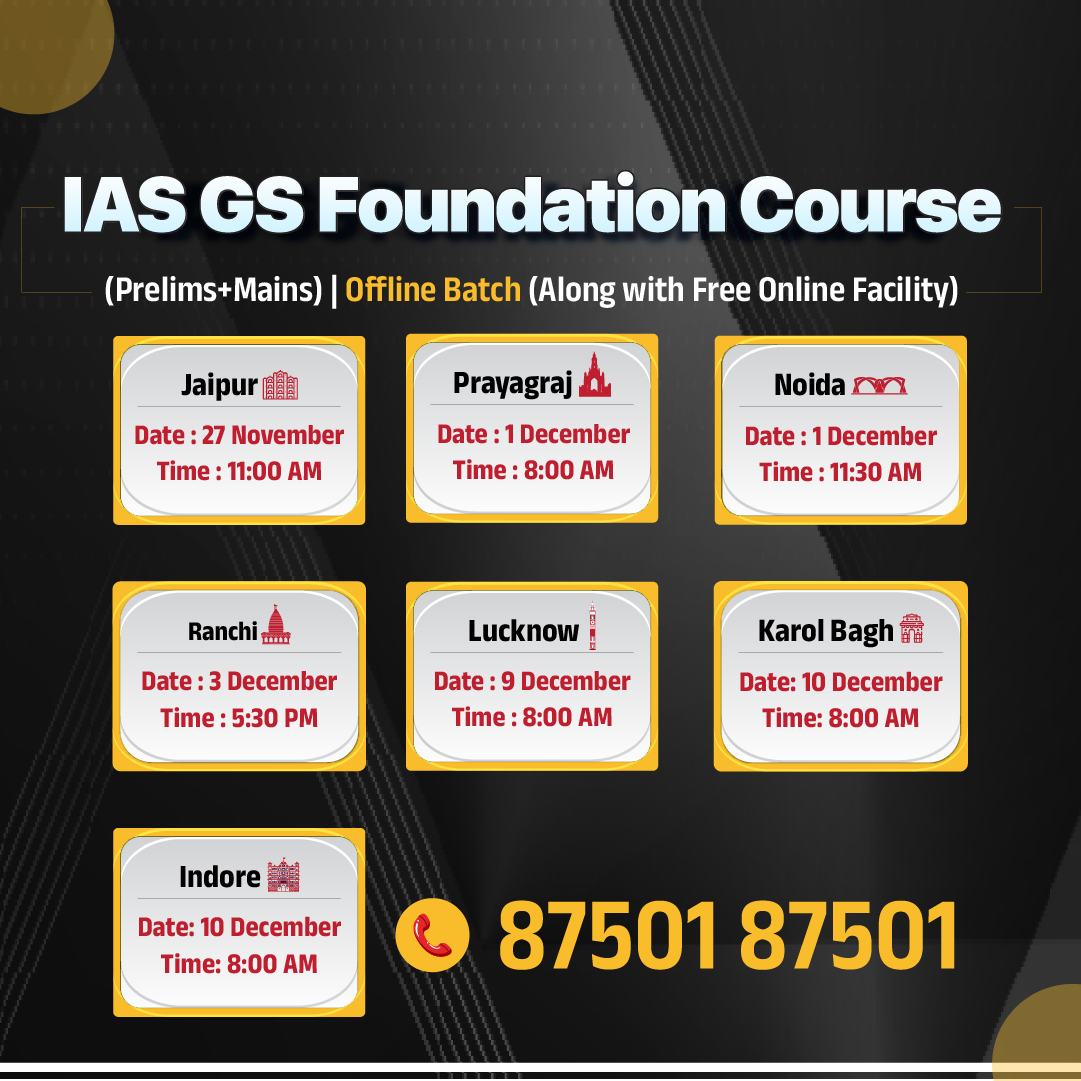
.jpg)








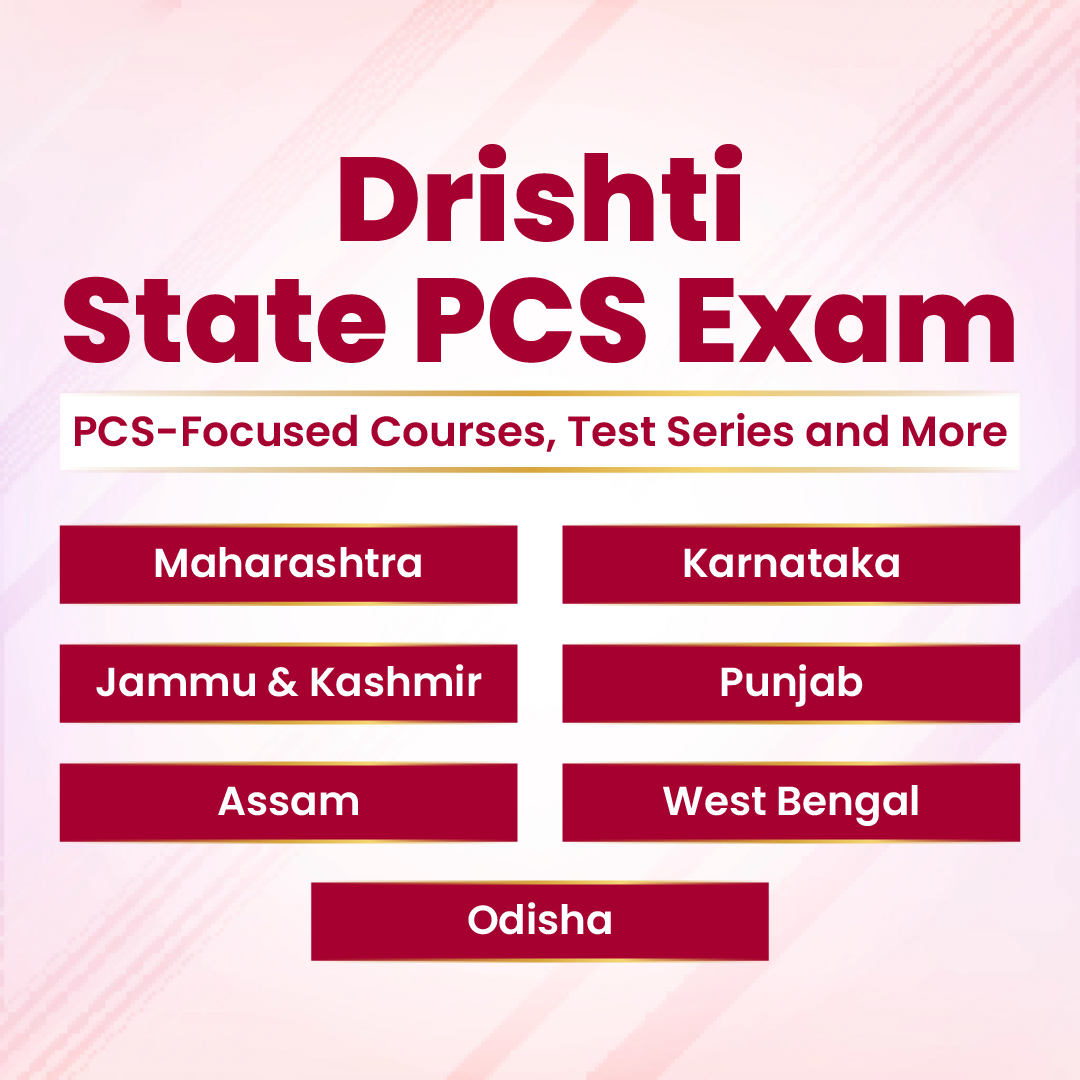

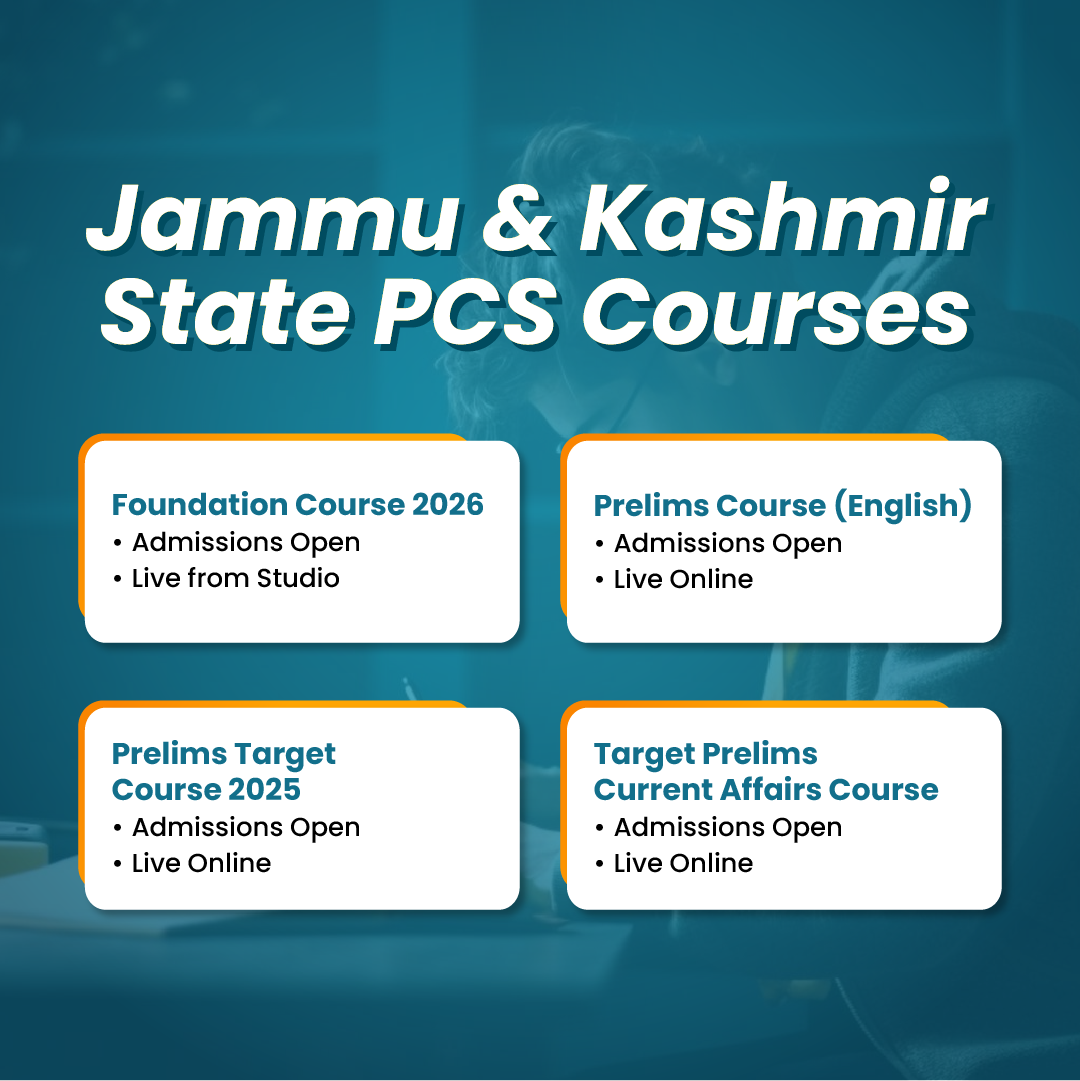

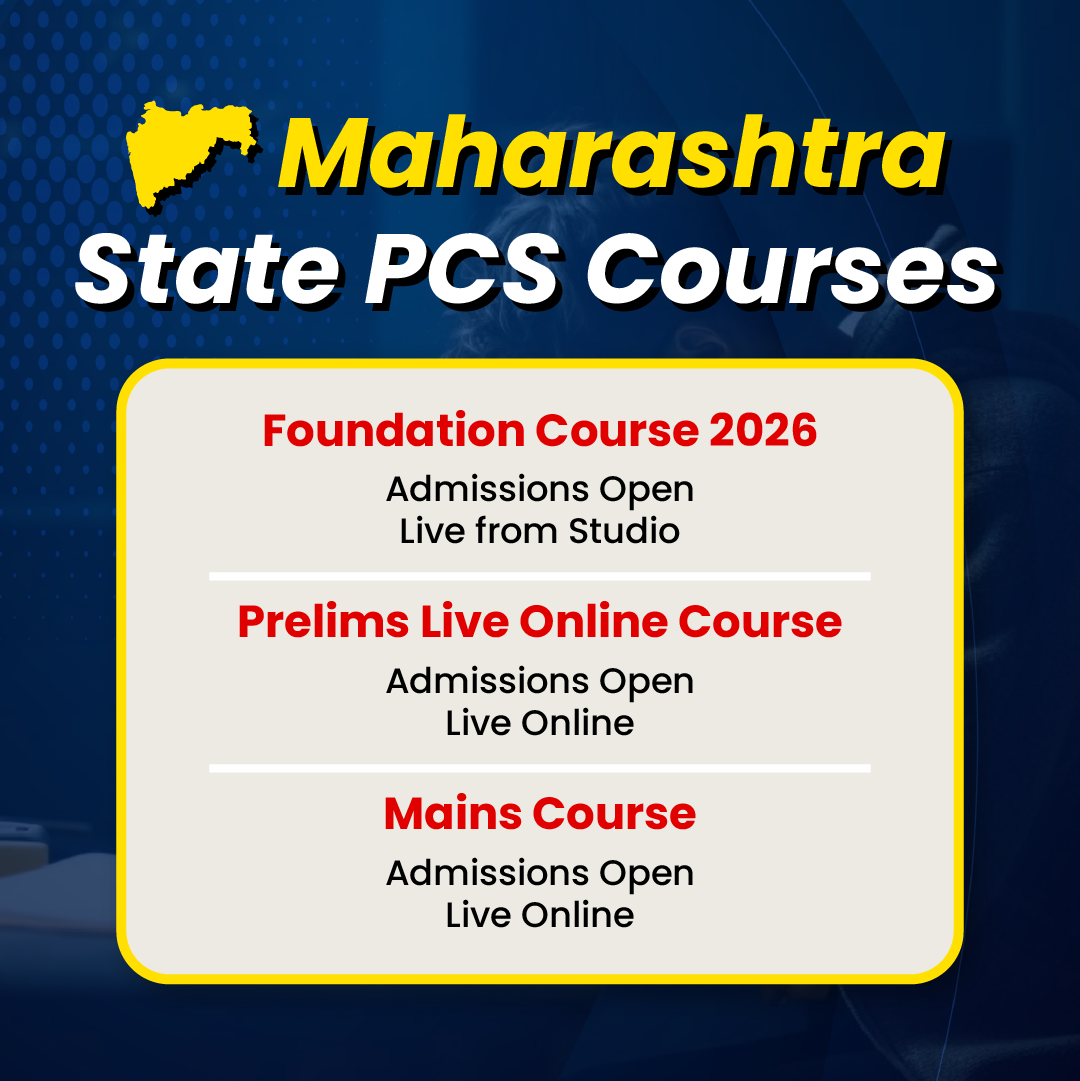

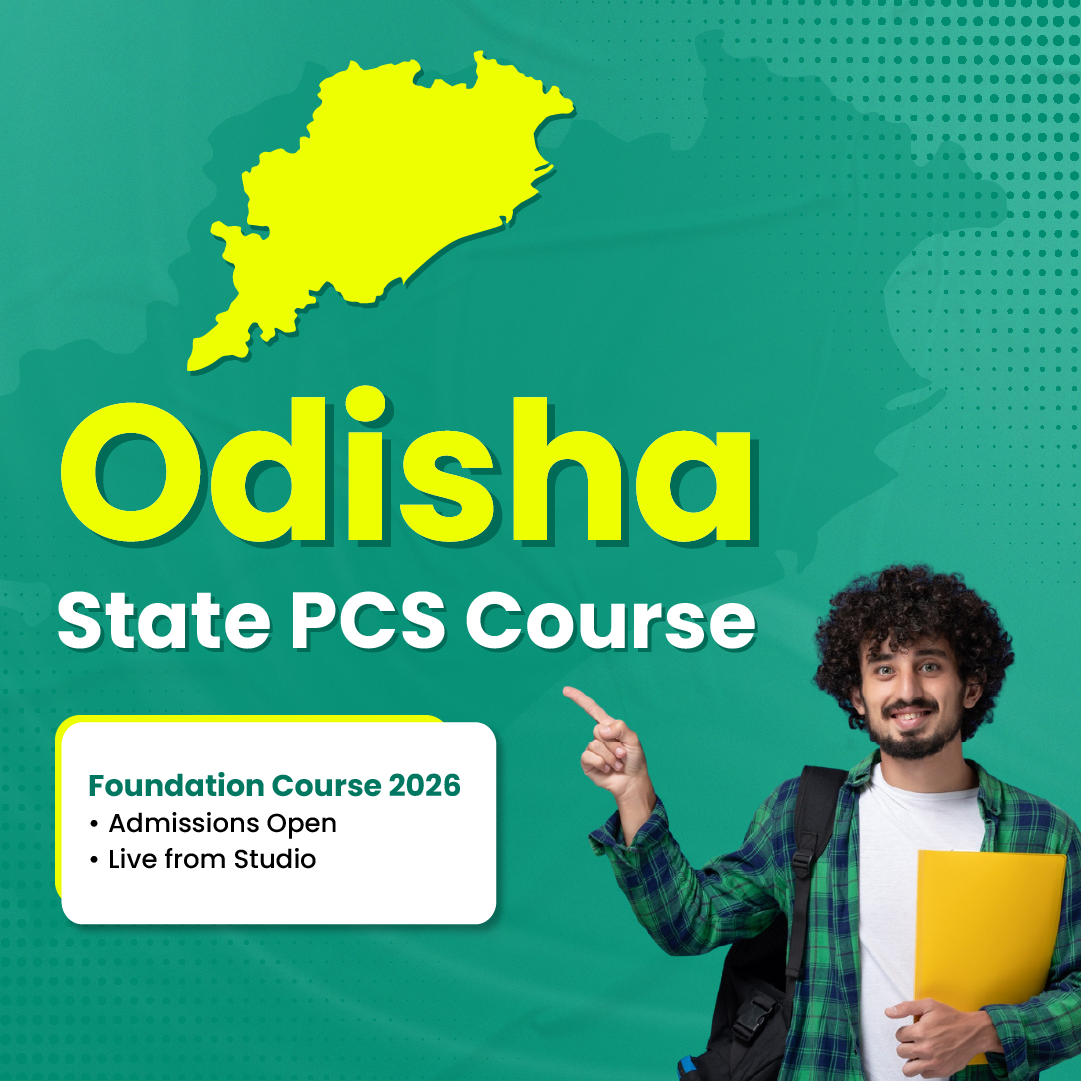



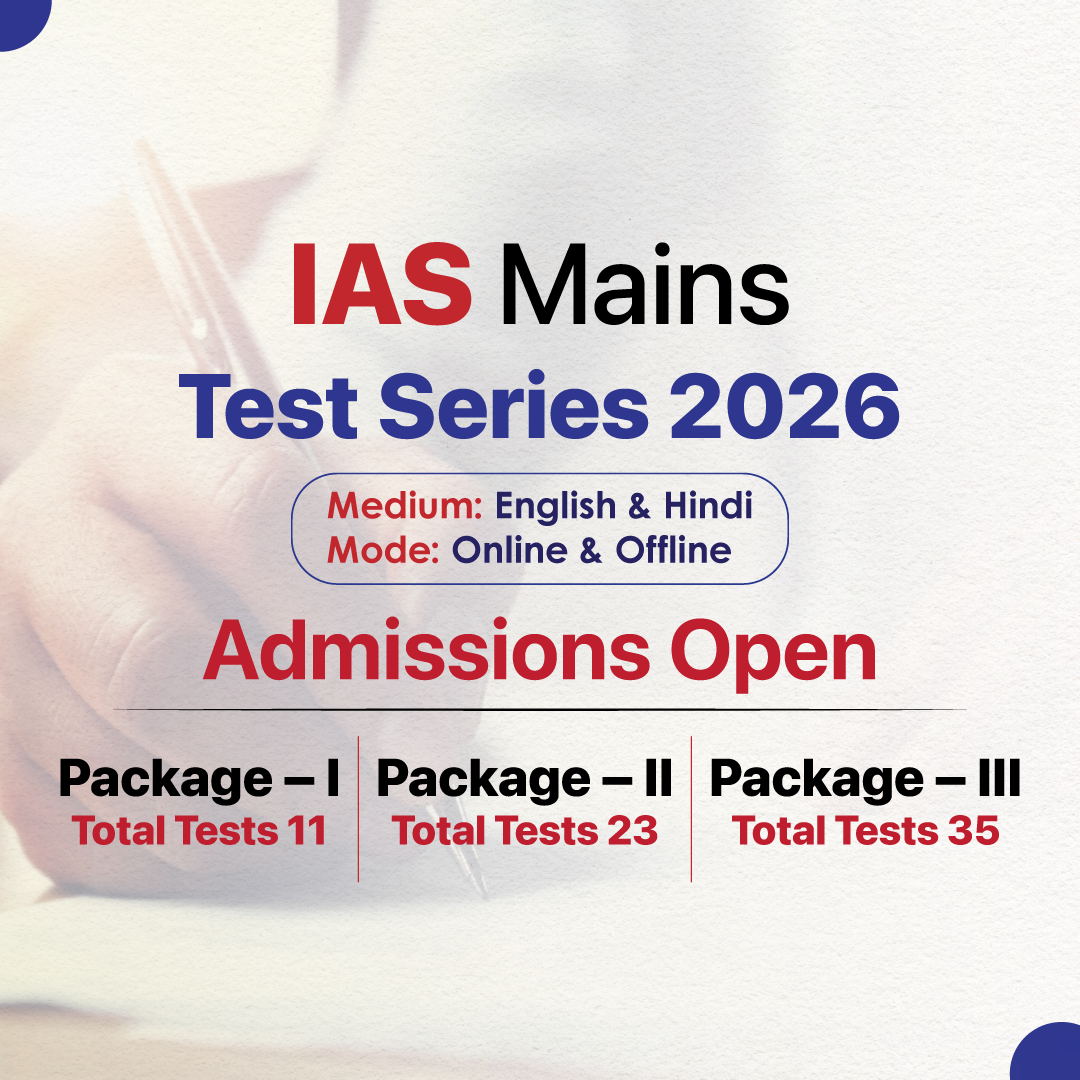

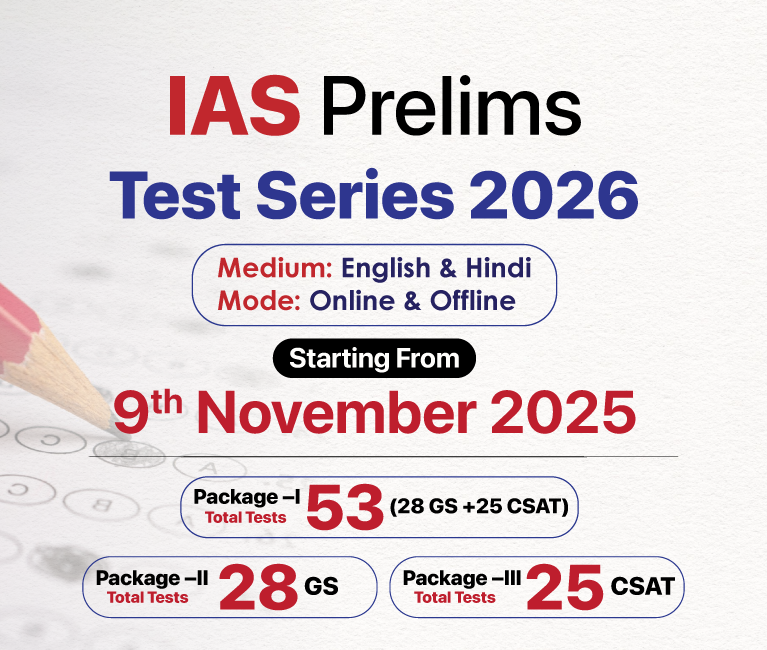


.png)


.jpg)

 PCS Parikshan
PCS Parikshan


